<< Previous | Displaying results 576-600 of 6769 for "" | Next >>
The eldest of six children born to Catholic parents, Franz was raised in a village in the part of Austria known as Carinthia. His father was a farmer and quarryman. Disillusioned with Catholicism, his parents became Jehovah's Witnesses during Franz's childhood and raised their children in their new faith. As a teenager, Franz was interested in painting and skiing. 1933-39: Franz was apprenticed to be a house painter and decorator. After Nazi Germany annexed Austria in 1938, like other Jehovah's…
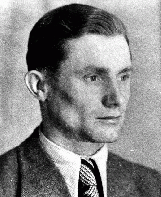
Emma was born to Catholic parents in Strasbourg, the capital of Alsace-Lorraine. Her father died when she was 8 years old, and Emma grew up on her mother's mountain farm. At 14 she became a weaver. Later, she married and moved with her husband to the Alsatian town of Husseren-Wesserling. In 1930 she gave birth to a daughter. In 1933 the Arnolds moved to the nearby city of Mulhouse. 1933-39: Emma and her family decided to become Jehovah's Witnesses. Emma felt she was blessed with a loving husband and…
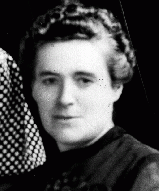
Ruth lived in Uzliekniai, a village in the Memelland, a region in southwestern Lithuania ruled by Germany until 1919. An avid reader, Ruth was distressed by news of postwar political turmoil. In 1923, when Uzliekniai became part of Lithuania, she joined the Jehovah's Witnesses. She married Eduard Warter, another Jehovah's Witness, in 1928. They had four children over the next five years. 1933-39: Ruth was busy raising her children and making sure they did their Bible studies. On March 22, 1939, the German…
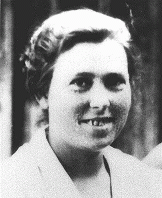
Johanna was born in Vienna when it was still the capital of the Austro-Hungarian Empire. Her Christian family experienced the disruption resulting from the empire's collapse, as well as the instability of the Austrian republic. The depression of 1929 hit Vienna especially hard. In 1931 Johanna became a Jehovah's Witness. 1933-39: Johanna traveled constantly in and out of Austria distributing our Jehovah's Witness literature. In March 1938 Germany annexed Austria and her family was subjected to Nazi law;…
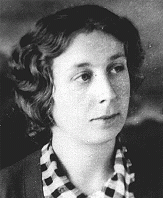
Berthold was an only child. He was raised in Paderborn, a town in a largely Catholic region of western Germany. Paderborn was near Bad Lippspringe, where there was a Jehovah's Witnesses congregation engaged in missionary work. Beginning in 1933, the Nazis moved to outlaw Jehovah's Witness activities. 1933-39: When Berthold was 4, his parents became Jehovah's Witnesses and he began to attend secret Bible meetings with them. Berthold began public school in 1936. His mother was arrested in 1939 and sent to…
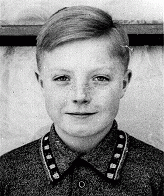
Josef was born to German Catholic parents. They lived in a Moravian village near the city of Sternberk in a German-inhabited region known as the Sudetenland. At that time Czechoslovakia was part of the Austro-Hungarian Empire. Upon graduation from a textile school, Josef supervised 600 employees at a silk factory in Moravska Trebova. 1933-39: After serving in the Czechoslovak army, Josef became a Jehovah's Witness in Prague, and refused to have anything more to do with the military, following the…
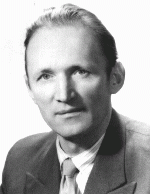
Willibald was the youngest of six children born to Catholic parents in a village in the part of Austria known as Carinthia. Disillusioned with Catholicism, his father and mother became Jehovah's Witnesses when Willibald was an infant, and they raised their children in their new faith. His father became the leader of the local Jehovah's Witness congregation. 1933-39: Willibald lived in a beautiful area near lakes and mountains. The Wohlfahrts were active in Jehovah's Witness missionary work, even though…
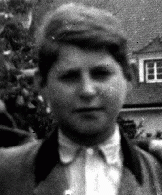
Born at the beginning of World War I, Wilhelm was patriotically named after Germany's emperor, Wilhelm II. The eldest son, Wilhelm was raised a Lutheran, but after the war his parents became Jehovah's Witnesses and raised their children according to their faith. After 1931, their home in the rustic town of Bad Lippspringe became known as a center of Jehovah's Witness activity. 1933-39: The Kusserows were under close scrutiny by the Nazi police because Witnesses believed that their highest loyalty was to…
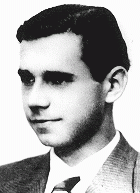
When Wolfgang was an infant, his parents became Jehovah's Witnesses. His father moved the family to the small Westphalian town of Bad Lippspringe when Wolfgang was 9. Their home became the headquarters of a new Jehovah's Witness congregation. Wolfgang and his ten brothers and sisters grew up studying the Bible daily. 1933-39: The Kusserows were under close scrutiny by the Nazi secret police because of their religion. As a Jehovah's Witness, Wolfgang believed that his highest allegiance was to God and His…
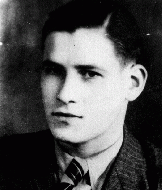
Helene lived in Herne and Bochum in western Germany, where she was married to a coal miner who was unemployed between 1927 and 1938. Following their disillusionment with the Lutheran Church during World War I, Helene, who was a nurse, and her husband became Jehovah's Witnesses in 1926. Together, they raised their two children according to the teachings of the Scripture. 1933-39: Under the Nazis, Jehovah's Witnesses were persecuted for their missionary work and because they believed their sole allegiance…
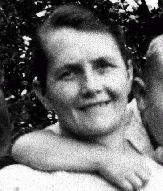
Simone was born in the Alsatian village of Husseren-Wesserling. In 1933 when she was three, her parents moved to the nearby city of Mulhouse. There, her father worked in a printing factory. Her parents were Jehovah's Witnesses and instilled in her the teachings of the faith. Above all, she was taught the importance of placing obedience to God before allegiance to any earthly authority. 1933-39: Simone grew up in a home full of love. Her parents would read the Bible to her. Their life included music, art,…
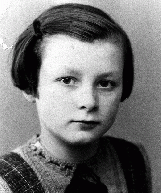
One of 11 children, Magdalena was raised as a Jehovah's Witness. When she was 7, her family moved to the small town of Bad Lippspringe. Her father was a retired postal official and her mother was a teacher. Their home was known as "The Golden Age" because it was the headquarters of the local Jehovah's Witness congregation. By age 8 Magdalena could recite many Bible verses by heart. 1933-39: The Kusserow's loyalty was to Jehovah, so the Nazis marked them as enemies. At 12 Magdalena joined her parents and…
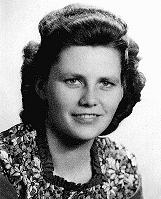
Ernst was an only child born to atheist parents in southern Austria during the middle of World War I. Raised in Austria's second largest city, he loved the outdoors, especially skiing in the Alps. In the early 1930s Ernst became a Jehovah's Witness. Although Austria was then in a deep economic depression, he was fortunate to find a job as a sales clerk in a grocery store. 1933-39: Austria's Catholic government was hostile towards Jehovah's Witnesses. When the Germans annexed Austria in March 1938, their…
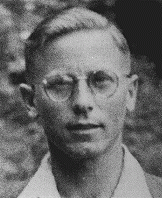
Gregor was the second of six children born to Catholic parents in a village in the part of Austria known as Carinthia. His father was a farmer and quarryman. Disillusioned with Catholicism, his parents became Jehovah's Witnesses and raised their children according to that religion. As a boy, Gregor loved mountain climbing and skiing. 1933-39: Gregor attended school and worked as a waiter. The situation for Jehovah's Witnesses worsened after Germany annexed Austria in March 1938; Witnesses refused to swear…
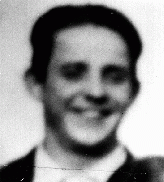
Hans was born to a Jewish family in the Austrian capital of Vienna. His parents ran a successful export shop for ladies' hats and sold their wares to many different countries. As a boy, Hans attended a private, preparatory school in which courses were taught in both English and German. 1933-39: Hans was attending business school when the Germans annexed Austria in 1938. Hans and his family watched from their window as German troops, led by Hitler, goose-stepped into Vienna. Hans was immediately forced out…
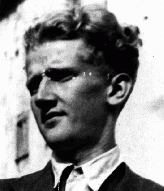
Ivo was an only child born to a Jewish family in the city of Zagreb. His father worked in an insurance company. Though blatant antisemitism was considered uncommon in Yugoslavia, Jews were barred from government and university positions unless they converted to Christianity. 1933-39: In Zagreb Ivo studied at a public secondary school. The curriculum was fixed and included three languages as well as religion. His school was highly selective but he enjoyed studying and did well. Though he didn't personally…
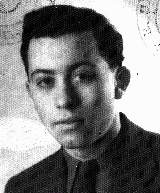
Bruna was the oldest of two children born to Italian-speaking Jewish parents who had settled in the cosmopolitan city of Trieste. Her father, born in Vienna, served in the Austro-Hungarian army during World War I. He became a naturalized Italian during the 1920s after marrying Bruna's mother. Growing up in fascist Italy, Bruna attended public schools in Trieste and felt proud to be an Italian. 1933-39: In September 1938 Bruna was surprised to see anti-Jewish graffiti. Then anti-Jewish race laws were…
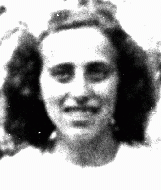
Hans was born to Jewish parents in a town in northwestern Germany. The family moved to Berlin when Hans' father obtained a post there as a history teacher in a secondary school. After graduating from university, Hans married and settled with his wife Margaret in an apartment in Berlin. In 1920 their child Wolfgang was born. Hans worked as foreign representative for a sewing notions company. 1933-39: When the Nazis won the election a few weeks ago, Hans was afraid for people like himself who are active…
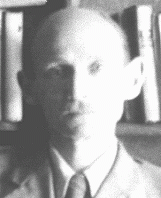
Lucie was born to Jewish parents living in Gera, a medieval German city on the banks of the Elster River in the Thuringer Forest. Gera was well known for its manufacture of Leica cameras, for its publishing houses, and for the extensive collection of Gobelin tapestries in one of its museums. 1933-39: A few weeks ago, Lucie married Hans Munzer here, in Paris. Hans fled Germany last year because the Nazis began rounding up and imprisoning socialists, and as a district supervisor for the Social Democratic…
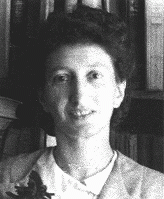
An only child, Wolfgang was born in Berlin to Jewish parents. His father was the foreign representative for a sewing notions company. The family lived in a comfortable apartment in the southwestern district of the city. Wolfgang attended secondary school there and hoped to become an electrical engineer. 1933-39: When the Nazis came to power, Wolfgang's father fled Germany because he was a socialist and was afraid he'd be arrested. Wolfgang's mother was very ill, so his grandmother took care of him until…
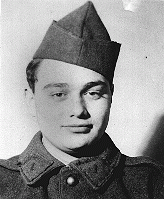
Gisha was raised by Yiddish-speaking, religious Jewish parents in the town of Pultusk in central Poland. She married in the late 1890s and moved with her husband, Shmuel David Bursztyn, to the city of Warsaw, where Shmuel owned and operated a bakery on Zamenhofa Street in the city's Jewish section. In 1920 the Bursztyns and their eight children moved to a two-bedroom apartment at 47 Mila Street. 1933-39: By 1939 six of Gisha's children were grown and had left home: her eldest daughters had married, and…
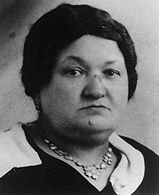
Sylvia's Jewish-born parents had converted to Christianity as young adults, and Sylvia was raised in the Christian tradition. Mr. Winawer was a successful lawyer and the family lived in an apartment in the center of Warsaw. Sylvia's mother collected art. 1933-39: Sylvia attended a private school run by the Lutheran Church, and she loved her school and classmates. When she was 9, her parents brought her the most wonderful "present"--a new sister! Two years later life changed when the Germans invaded Poland…
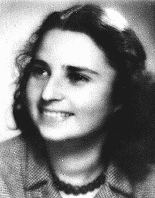
Hana was born to a Jewish family in Prague, the capital of Czechoslovakia. Her father, a metalsmith, made pipes, spouts and gutters for construction companies. Because her mother was frail, Hana was raised by her father and grandmother. She attended a Jewish school through grade five, and later went to business school. 1933-39: In 1933 Hana read about the harrowing treatment of Jews during the Spanish Inquisition and told her grandmother, "Aren't we fortunate that we live in the 20th century in…
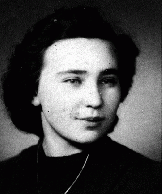
Carl was one of nine children born to Jewish parents living in a village near the Belgian border. When Carl was 26, he married Joanna Falkenstein and they settled down in a house across the street from his father's cattle farm. Carl ran a small general store on the first floor of their home. The couple had two daughters, Margot and Lore. 1933-39: Carl has moved his family to the city of Bielefeld, where he is working for a Jewish relief organization. Requests from this area's Jews to leave Germany have…
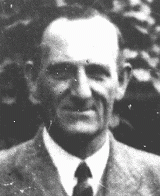
Heinz, as he was usually called, was born in the German capital to religious Jewish parents. He and his older brother, Kurt, attended both religious and public schools. His father had died when he was very young. His mother, a seamstress, struggled to make ends meet. She and the boys lived in a predominantly Christian neighborhood. 1933-39: It frightened Heinz when Nazi storm troopers sang about Jewish blood dripping from their knives. But his family didn't have money to leave Berlin. In late 1939 Heinz…
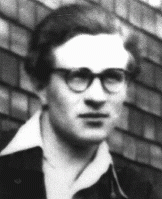
We would like to thank Crown Family Philanthropies, Abe and Ida Cooper Foundation, the Claims Conference, EVZ, and BMF for supporting the ongoing work to create content and resources for the Holocaust Encyclopedia. View the list of donor acknowledgement.